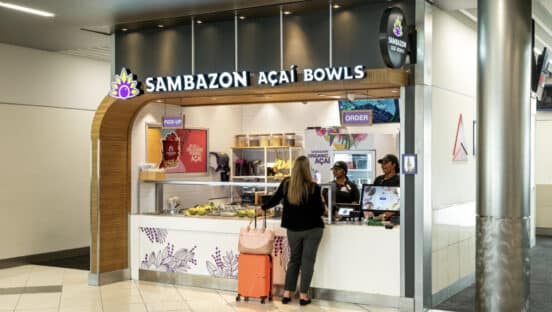For more than 33 years, franchisees Ken Gray and Larry Erdman have been successful business partners in the quick-serve industry. Having grown up together and attended the same high school and college, Gray and Erdman became master franchisees with Subway in 1979, a venture that spanned more than 25 years. The duo has since seen lasting success with Philly’s Best and continues to maintain an effective partnership in a constantly changing market.
Gray and Erdman explain how basic communication and idea sharing can create a smooth franchise relationship and successful business.
1. Communicate consistently and constantly
The business partnership has to start with the basics. Both partners have to be able to listen to each another and give constructive input when necessary. Even before that, each must allow the possibility that professional input is possible. If you’re a strong-minded individual, it can be a real challenge, but you have to open up to the idea that you might not know everything. It’s this simple communication that will help a partnership succeed.
Once each partner understands his or her role in the business, it’ll get even easier. The foundation of a successful partnership is knowing there is, and can only be, one boss, and that has to be the partner inside the store. If partners don’t figure this out early enough, each decision will become increasingly more difficult, as there won’t be a final decision from one particular source.
Furthermore, when each partner is capitalizing on his or her business forte, it’s even easier. One can take part and excel at the accounting, marketing, and bookkeeping, where the other is inside the store, dealing with customers, employees, suppliers, and so on. Afterward, whether it’s on a daily or weekly basis, the job duties should be discussed and problems worked out, if necessary.
2. Make mutual decisions
Even though there needs to be one boss, partners need to arrive at business decisions together. If there is no mutual agreement, then a decision will not be carried out. It takes discussion and communication to arrive at key business decisions, big or little. We never go against the other’s professional judgment and have never been in a situation where our business practices did not align.
At one particular time in our history, Larry would work at the store Monday through Friday and I (Ken) would come in on the weekends. The problem was that when I was there on the weekends, I tried to change everything Larry was trying to establish from an operational standpoint. That lasted for about two weeks. It was a crossroads for us, but it was a learning experience and we discovered how to work for the success of the business, rather than just our individual accomplishments. Just like with any partnership, business-related or not, you can’t always get your way and you might be wrong at times. Once that mutual understanding is there, it becomes a smooth operating partnership.
3. Trust both partner and franchisor
We’ve both seen other business partners in other industries that constantly battle one another for their individual gain. The underlying issue in their failure is the lack of trust. Everything in the business will crumble if there isn’t established trust in the partnership. If one partner is in charge of inventory, the other shouldn’t need to check it afterward, for example. Trust that the work, whether it is yours or the partner’s specific duty, is getting done as efficiently as possible.
You also need to establish a trust-based relationship with the franchisor. They have a big role in the partnership and are there to help you in any way possible, even when there are two owners that need help on an issue. We speak with our franchisor at least a few times a month and trust that their implementations are best for us as a business and a brand. If you trust the product, your partner, and the franchisor, you’re going to have a successful business no matter what the industry.
4. Use your time wisely
If you’re just starting a partnership in this industry, check out every aspect of the business together as a team. Some franchisees don’t know what brand to go with at the start of their career; do your research on the brand and product together. Research the success rate, failure rate, cost of goods, and other areas of business. We probably came into Philly’s Best and had lunch more than 30 times before we ever even thought of purchasing a store. We both had to be comfortable with it. Sit down and look at the business together. Map out your goals for a business and you’ll learn a lot from each other. You really gain a lot of insight when mutual goals are in mind.
One last thing is to make sure you spend a lot of time together outside of the business, too. You’re trying to develop personal relationships with customers and community in this industry, and it’s important that your partnership is a model of that goal. It was easy for us because we grew up together, but if two partners come from a separate industry and don’t know each other well, spend some time together away from the business and develop the partnership.







